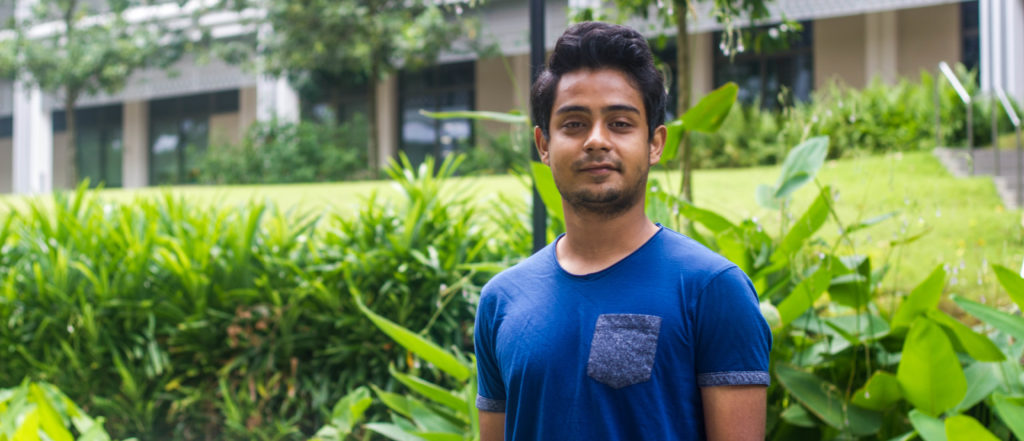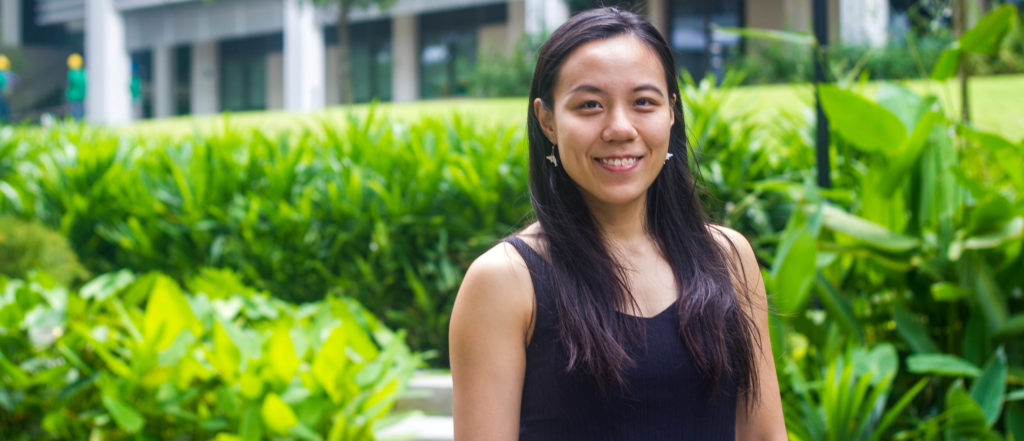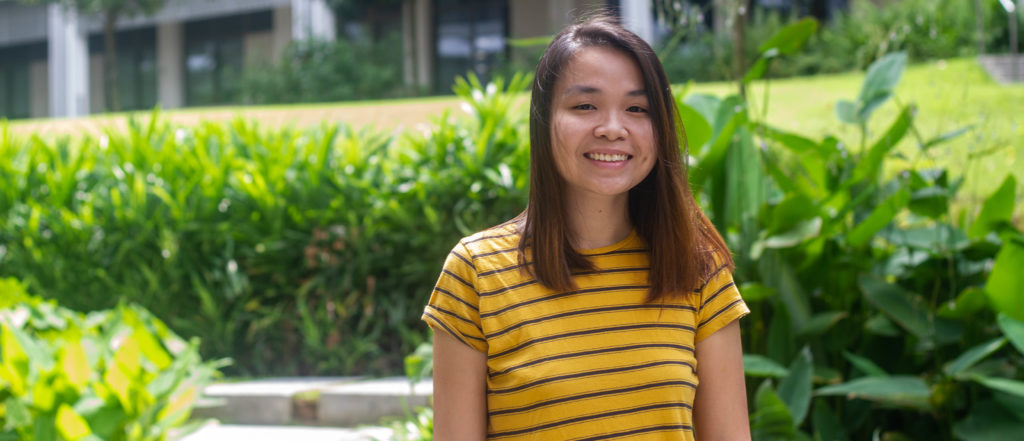Senior capstones borne out of personal and academic passions
As they complete their degree programme at Yale-NUS College, all students will work on an independent piece of scholarly work, the capstone, in their senior year. Students will work with one or two faculty members to develop their chosen research topic in a structured, supportive and collaborative environment.
 Image by Saksham Mehrotra for Yale-NUS College.
Image by Saksham Mehrotra for Yale-NUS College.
Seniors across the 14 majors in Yale-NUS have the liberty to pick any research topic that they would like to base their capstone upon. For some students, like Nilotpal Chakraborty (Class of 2019, in photo above), the inspiration behind their capstone topics stem from previous academic passions in which they had dabbled in but had not fully explored.
A Physical Sciences major, Nilotpal’s capstone studied electronic transport (the movement of electrons) in twisted bilayer graphene.
“Graphene is a 2-dimensional material (it is just one atom thick) which has been found to have very high electrical and thermal conductivity and tensile strength. New research has shown that when you stack two layers of graphene on top of each other and twist one of them slightly with respect to the other, you can get a superconducting sample. Several physicists have proposed various mechanisms to explain this superconductivity, but there is no consensus yet. One way to resolve this dispute is to study the factors affecting the flow of electrons in the sample, and that is what I am doing for my capstone,” he said.
Nilotpal’s specific interest in twisted bilayer graphene was augmented when he went on a study abroad programme at Harvard University. During his time there, pioneering experiments that showed that one could get superconductivity with twisted bilayer graphene were conducted at the Massachusetts Institute of Technology (MIT) and their results published. As such, he had the opportunity to attend many presentations on this subject at both Harvard and MIT. Such exposure led him to explore electronic transport in this new twisted graphene sample for his capstone.
Nilotpal discovered a property of the interaction between the electrons and the vibrations of the atomic lattice at low temperatures, which could possibly help explain the superconductive properties of graphene when twisted in this manner. Together with his mentor Associate Professor of Science (Physics) Shaffique Adam and other researchers from peer universities, Nilotpal co-published a paper on this research in the peer-reviewed journal Physical Review B, of which he is one of the two lead authors.
 Image by Saksham Mehrotra for Yale-NUS College.
Image by Saksham Mehrotra for Yale-NUS College.
Like Nilotpal, the capstone topic that Crystal Yong (Class of 2019, in photo above) picked was similarly borne out of an academic interest that was further developed during her time studying abroad. For her Environmental Studies capstone, she looked at “how soil farmers in Singapore are reacting to the nation’s dominant narratives and policies that advocate hi-tech farming.”
By 2021, many of the farms in Lim Chu Kang in Singapore will no longer be able to renew their leases due to the use of their land space for new army training grounds, and to continue farming, they have to apply for new land tenure in other areas. Through her capstone, she examined how the bidding system is proposal-based, with criteria that she argued, strongly favours hi-tech vertical farming and disadvantages soil-based farmers.
Crystal’s interest in Singapore’s farming scene was first developed when she took a course on agrarian change taught by Assistant Professor of Social Sciences (Environmental Studies) Marvin Montefrio. As a Singaporean who had little knowledge about the multitude complex systems behind the production of food, she found it both intriguing and fascinating to learn about the agricultural industry from a sociological perspective. Later, during her semester abroad in Taiwan, she was tasked to pen an essay about Singapore’s agriculture for an assignment.
While working on the assignment, she felt that “there seemed to be a lot of government support for farming in Singapore”, which did not corroborate her previous personal interactions with local farmers.
“I began to realise that this disconnect was because the government support was not for farming as we know it now, but for a certain vision of farming for the Smart City initiative – vertical, indoor and “innovative”. I saw this disjunct as an opportunity for further inquiry and it eventually served as the basis for my capstone research,” she added.
 Image by Saksham Mehrotra for Yale-NUS College.
Image by Saksham Mehrotra for Yale-NUS College.
Another student whose capstone also focused on local issues is Psychology major Sheryl Tey (Class of 2019, in photo above). Her capstone project investigated the use of virtual reality (VR) as an additional tool in health campaigns that seek to reduce the stigma of mental health in Singapore.
“For my capstone, I provided participants with a VR video that allowed them to take the perspective of an individual suffering from depression as the symptoms are slowly revealed through a narration of the person’s inner thoughts and surroundings. I then evaluated if this VR video, as compared to standard campaign materials, better reduces the stigma that members of the public may have of mental health patients,” she said.
Unlike Crystal and Nilotpal whose capstone inspirations dominantly came from academically driven interests, Sheryl’s capstone stemmed from her longstanding personal interest in mental health issues.
Sheryl added, “Over the past year, I’ve worked closely with a social enterprise that uses VR to increase awareness, engagement and empathy towards social issues. The first time I watched a VR video, I was amazed by how immersive it was and saw its potential in engaging people with topics that people typically avoid. Given that mental health is something I’ve always been personally invested in, it became natural to study the effectiveness of VR in tackling mental health stigma for my capstone.”
From bringing about a new understanding of policies, a new tool to benefit others, to a published paper to share knowledge with others, capstones also mark the culmination of seniors’ academic learning at Yale-NUS and lay the foundation for their continuous learning as they graduate from College.
This story is the last of a two-part series on Yale-NUS’ capstones in 2019. Click here to read the first story of the series.





